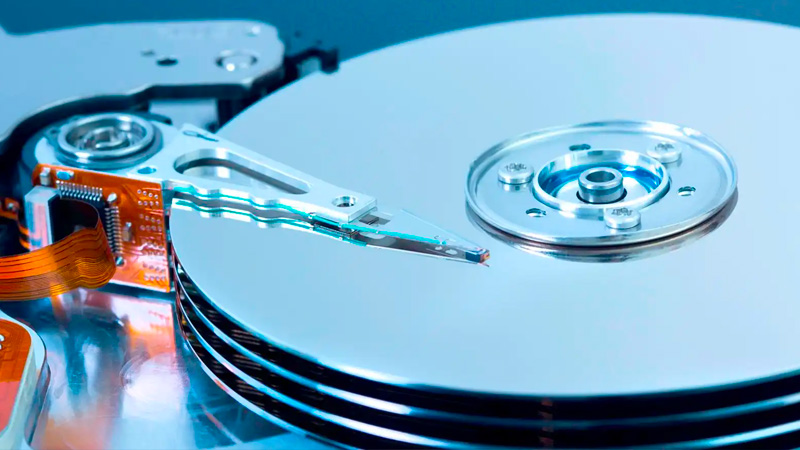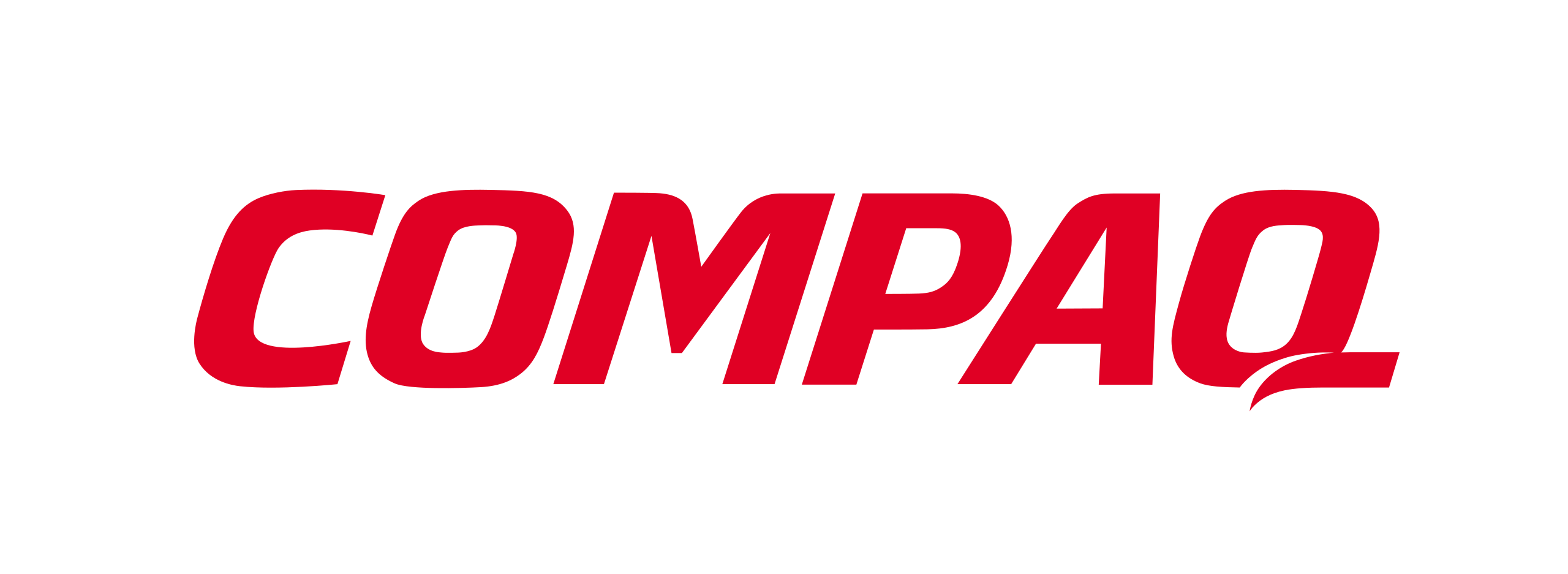How Do You Know If Your Hard Drive Is Failing You?
A hard drive is one of the most critical parts of a computer. While it does not serve as a way of powering the computer and allowing programs to run, which is the case with a CPU and the RAM, the hard drive stores all data that needs to be read by these computer components. Additionally, all of your most valuable files are also stored on your computer’s hard drive.

How Do You Know If Your Hard Drive Is Failing You
Unfortunately, even though the most valuable component in your computer, a hard drive is often considered to be one of the most vulnerable too. These devices can fail at any time. The major problem is the fact that it is generally considered difficult to predict when a hard drive may fail.
We look at some signs that may signal a failing hard drive in this post. We will also consider signs that may signal your hard drive has already failed. By knowing about these signs, you will be better equipped to understand what is happening when you are presented with certain error messages on your computer.
What Are The Signs Of A Failing Hard Drive?
Recognizing signs of a failing hard drive before the component breaks down is really a critical part of helping you avoid losing important files. Thus, the first step to better understanding a failing hard drive is to ensure you know what signs may signal this problem in the first place.
There are a few problems that can occur while your drive is failing. When you take action while these signs are present, you can ensure you have a backup of all your important files before the hard drive finally fails completely.
Common problems that you may run into that can signal a failing hard drive include:
- You may hear a strange noise coming from your hard drive. If your hard drive is installed in a computer box, you may notice these sounds from the box. Try to open the box to see if the sounds are indeed coming from the hard drive. The hard drive can sometimes make a clicking sound. Some people would also describe strange noises as a humming sound.
- You may run into repeated errors while trying to access certain files. The same can happen with programs. If multiple applications are giving you errors when you try to launch or use them, then it may be a sign of a failing hard drive.
- You could also run into repeated errors while you are using a specific application on your computer. You might still be able to open up software on your computer, but you could run into errors while the software is running.
Sometimes, a computer may simply act strangely. This may include suddenly booting slower than usual. The read/write speed of the hard drive could decline. This could make it much harder to actually get a file to open. You might have to wait several minutes for a simple document to open, for example.
There are also times where files could perhaps disappear. This could be a sign that the drive is failing, but may also be a symptom of existing damage that has been dealt with the hard drive already. When certain parts of the disc in your hard drive are damaged, then the files stored at those locations may start to vanish from your computer.
What Happens When Your Hard Drive Already Failed?
Not everyone will notice that their hard drive is failing before something major happens. Perhaps your computer is running more slowly than usual, but you consider this to be a sign of a different problem. You upgrade your RAM, only to find that this is not the case. By the time you have considered all of your options, your drive has already been damaged and may fail on you.
When your hard drive fails, you need to take quick action if there are important files on the drive that you may need to recover for future use. In some cases, it is possible to restore data from a failed hard drive. There are, however, scenarios where it is not possible – even when you get a data recovery expert to help out with the situation.
Some common signs that your hard drive has already failed may include:
- One of the most popular ways to detect a failed hard drive would be the dreaded Blue Screen of Death. This problem is also referred to as the BSOD. Sure, the BSOD does not always mean that you have a broken hard drive, but it is often the problem when you are faced with this screen. Be sure to take a closer look at the error that is noted on the screen when faced with such a situation. The error code can be Googled for more details on what happened to your computer.
- Your computer may start to turn on, but once it goes past the initial boot screen, you are presented with an error message before your operating system even started to load. A common error may be “File not found.”
- When you switch on your computer, these problems may be accompanied by a loud noise that comes directly from your hard drive. The noise may sound like a clicking. Sometimes a scratching sound can also come from a hard drive that has failed. This is usually the case when the failure of the hard drive is related to the physical moving parts within the component.
There are also cases where a computer will simply fail to start when the hard drive is damaged.
Can You Recover Your Data?
Whether or not data recovery would be possible on a failed hard drive depends on what caused the problem. There are cases where you can make data recovery and find the important files that might have been stored on the drive. At the same time, there are also many cases where people are faced with a hard drive that is completely unusable. In such a case, data recovery will likely not be possible.
When you are faced with a failed hard drive, you could try to use a data recovery program. If physical parts of the hard drive have been damaged, however, you may need to contact a data recovery expert. These individuals are able to fix certain problems with the failed hard drive – allowing them to temporarily gain access to the files stored on the drive.
It would be best to take your hard drive to such an expert in case it failed. Trying to fix the drive yourself could lead to worse problems, potentially resulting in a hard drive where data recovery is not possible at all.
How To Prevent Data Loss From A Failed Hard Drive?
There are ways that you can reduce your risk of losing important files when your hard drive does fail. As we have mentioned previously, it is not possible to tell when a hard drive may fail. These devices are generally manufactured to last for a period between three and five years. Some hard drives fail much sooner than their three-year mark. On the other hand, there are also many people who use a single hard drive for a decade and can still access files on the drive without a problem.
Setting up a backup system is the most crucial part in avoiding data loss when your hard drive fails on you. There are several ways that you can do backups.
When it comes to deciding on a backup system to use, you should consider what your preferences may be. Also, take a look at the size of the files that you cannot lose access to.
What about if you have a large amount of Data?
If you have large files on your hard drive, then consider getting an external hard drive. Use the external hard drive to make frequent backups of the most important files on your internal drive. You can make a point of updating the backup on the external hard drive once a week, for example.
You can also choose to use a cloud-based backup solution. This would be more ideal for smaller files on your computer. There are a few options that you can choose – many of these options come with some initial online space for free. Google Drive, Apple Drive, and Microsoft OneDrive are some of the more popular options.
When you decide to use a cloud backup service, make sure you configure the sync settings for these accounts. Once configured, store all of your most important files directly in the folder that is automatically synced with the cloud service.
Conclusion
A hard drive stores all your most valued files and even sometimes confidential information. When your hard drive fails, you are at risk of losing the files that were stored on the component. We looked at signs to look out for, which may signal a failing hard drive. We also considered a few problems that you may run into when your hard drive has already failed you. Consider these signs and take appropriate action to help reduce the risk of losing important data and files.
References
- https://hetmanrecovery.com/recovery_news/identifying-hdd-noise-problems.htm
- https://www.easeus.com/data-recovery/data-recovery-software/recover-data-from-dead-hard-drive.htm
- https://www.techradar.com/news/the-best-cloud-storage
Written by The Original PC Doctor on 04/08/2019.





















































































